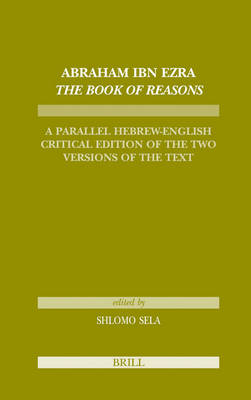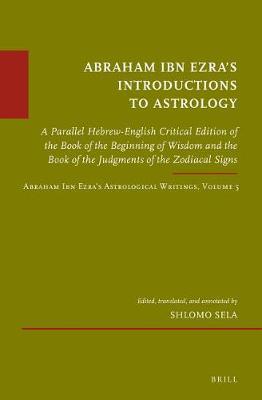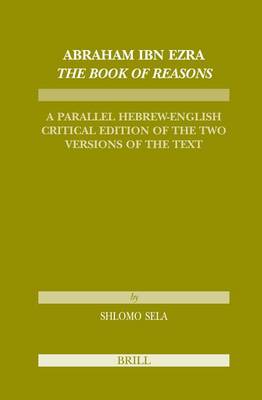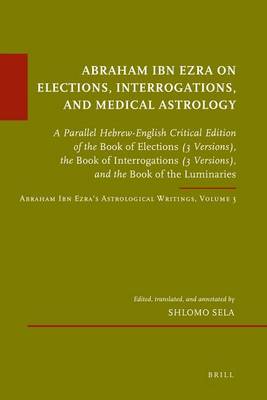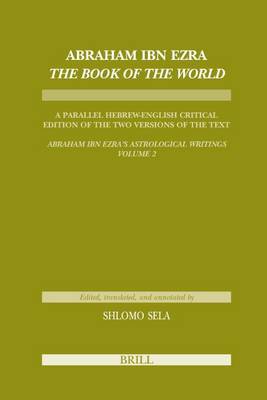Etudes Sur Le Judaisme Medieval
2 primary works • 6 total works
Book 35
The present volume offers a critical Hebrew text of the two versions of Ibn Ezra's Sefer ha-Te'amim, the Book of Reasons, accompanied by an annotated translation and commentary. The two treatises presented here were designed by Ibn Ezra to offer "reasons", "explanations", or "meanings" of the raw astrological concepts formulated in the introduction to astrology that Ibn Ezra entitled Reshit Hokhmah (Beginning of Wisdom).
Book 69
The present volume offers a critical edition of the Hebrew texts, accompanied by English translation and commentary of Reshit Hokhmah (Beginning of Wisdom) and Mishpetei ha-Mazzalot (Judgments of the Zodiacal Signs) by Abraham Ibn Ezra (ca. 1089-ca. 1161). The first, the summa and by far the longest of his astrological works, the target of the most cross-references from the rest of that corpus and the most influential, enjoyed the widest circulation among Jews in the Middle Ages and after. The second, by contrast, is the most obscure. It is never referred to elsewhere by its author and is the only work for which Ibn Ezra's authorship must be substantiated. Reshit Hokhmah and Mishpetei ha-Mazzalot were written in order to explain concepts common to the various branches of astrology that Ibn Ezra addressed elsewhere and to elucidate the worldview that underlies astrology. These two treatises are the richest and most varied with regard to the astrological information they present. Reshit Hokhmah and Mishpetei ha-Mazzalot also exemplify the close collaboration between astronomy and astrology in medieval science and are the two components of Ibn Ezra's astrological corpus with the most extensive, comprehensive, and significant astronomical content.
"A critical edition with English translation of Reshit Hokhmah was published in 1998 by Epstein. Sela has not only aspired to improve it but also supplied a commentary to render the text more comprehensible. Sela's mission is successfully accomplished for both treatises. This multifarious book is another important contribution to a deeper understanding of the life and work of one of the most important medieval Jewish polymaths." - Ilana Wartenberg, Universitat Bern, in: Journal for the History of Astronomy 50.1 (2019)
"A critical edition with English translation of Reshit Hokhmah was published in 1998 by Epstein. Sela has not only aspired to improve it but also supplied a commentary to render the text more comprehensible. Sela's mission is successfully accomplished for both treatises. This multifarious book is another important contribution to a deeper understanding of the life and work of one of the most important medieval Jewish polymaths." - Ilana Wartenberg, Universitat Bern, in: Journal for the History of Astronomy 50.1 (2019)
Abraham Ibn Ezra on Elections, Interrogations, and Medical Astrology
by Shlomo Sela
Published 9 September 2011
